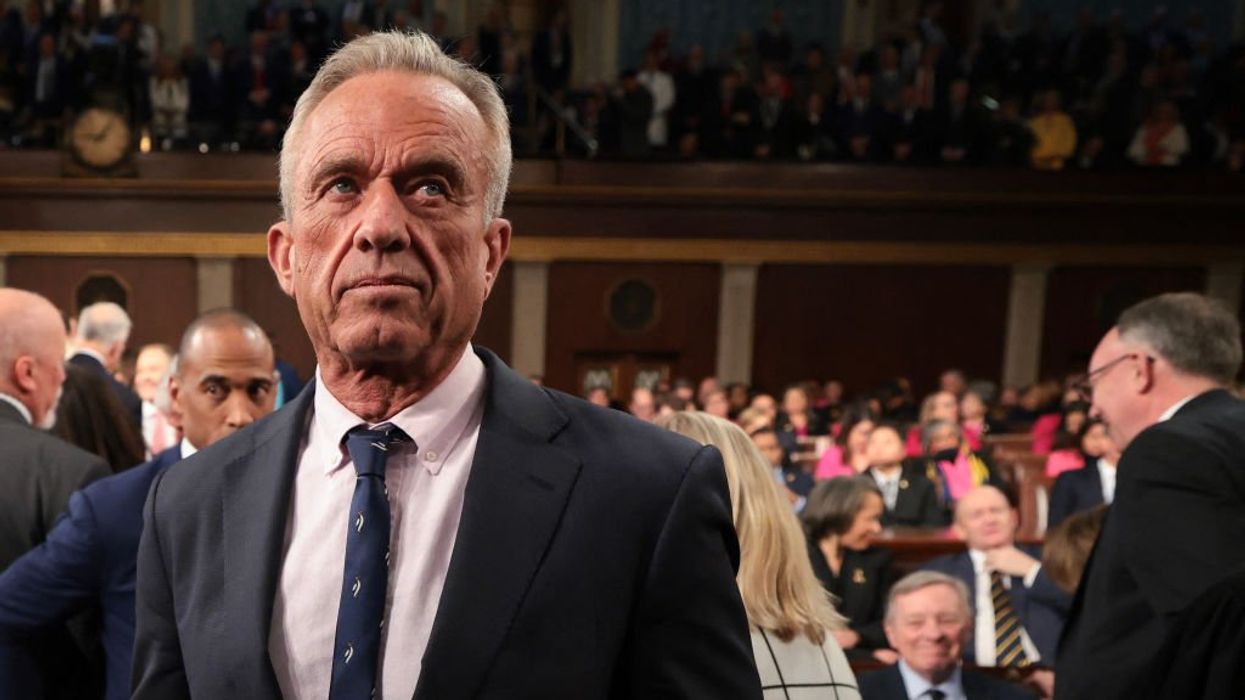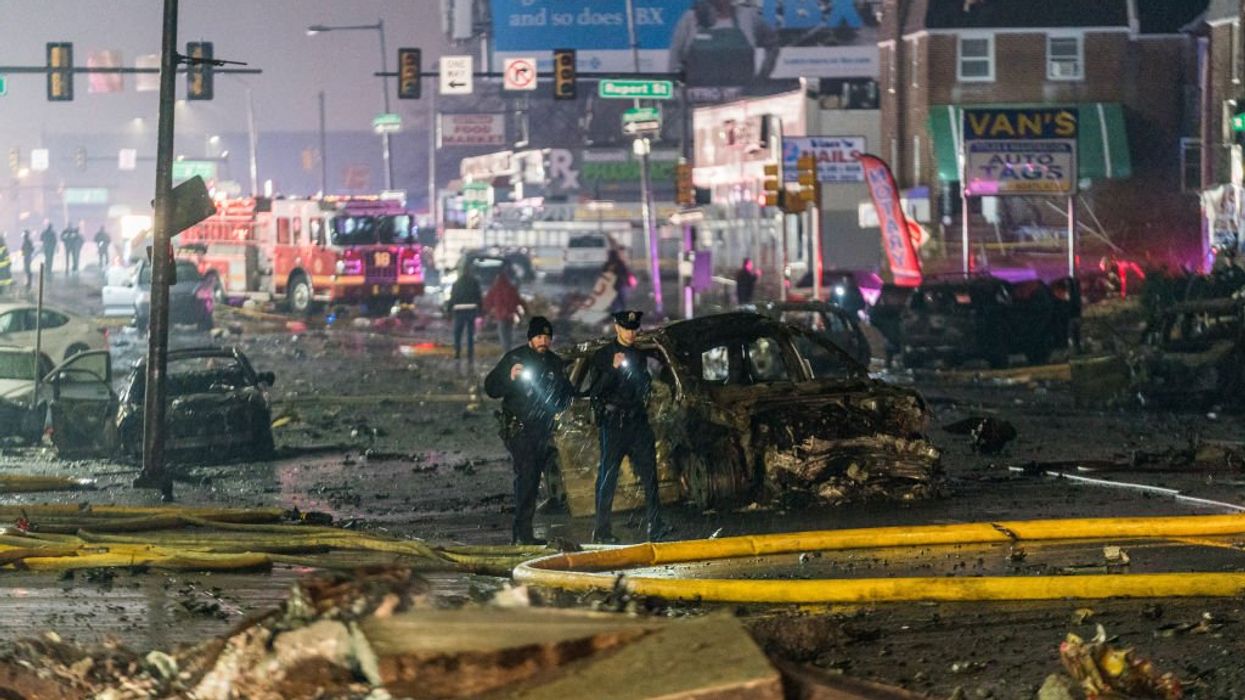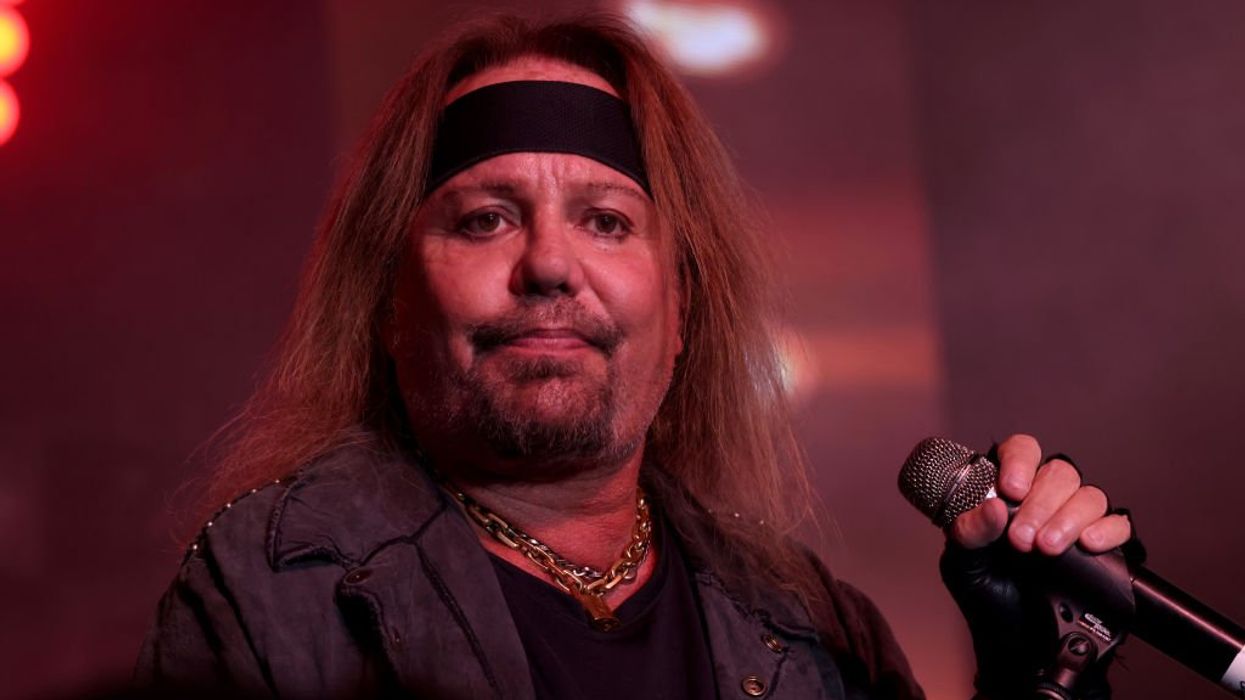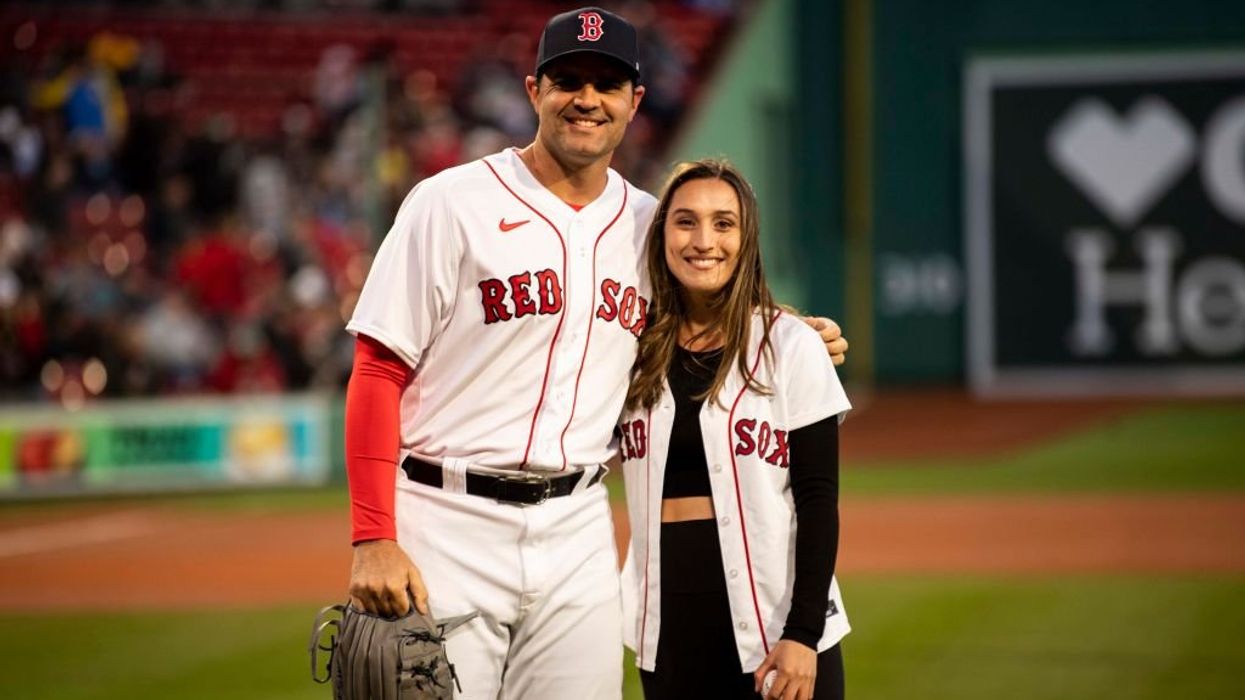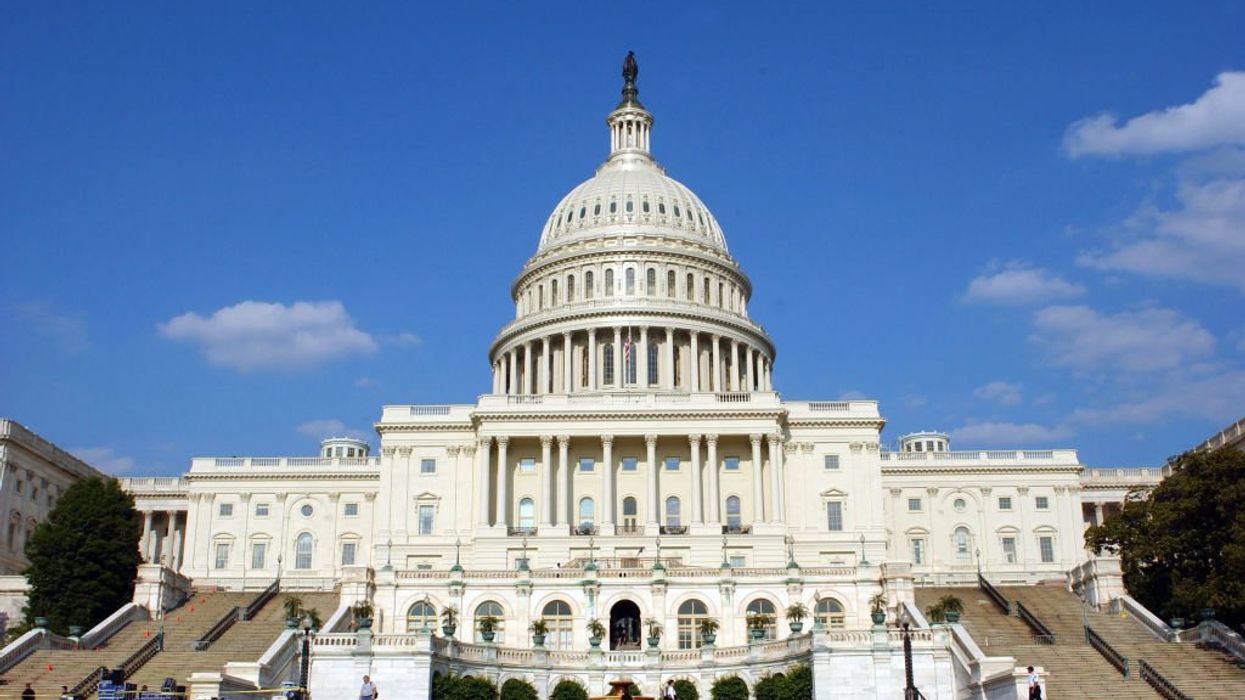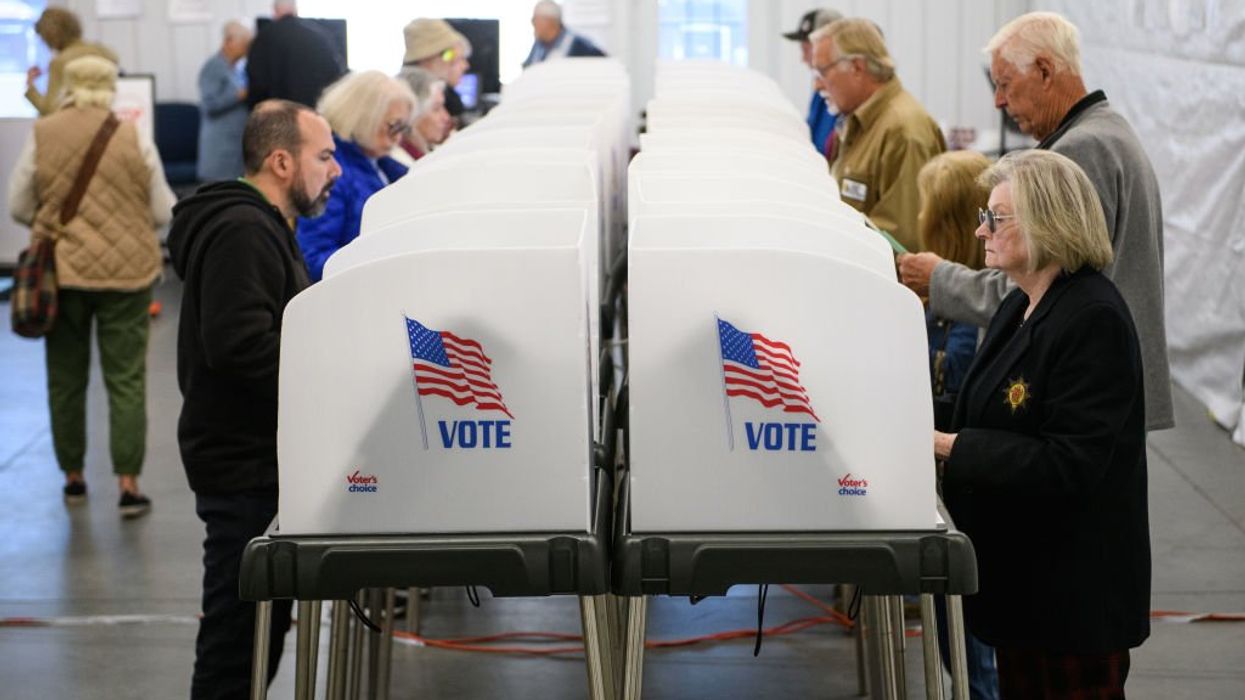This edition features a brand new number two, a big mover in the top five, and the biggest drop since we started the power rankings.
In case you're new here, read our explainer about how all of this works:
The 2020 Democratic primary power rankings are an attempt to make sense out of the chaos of the largest field of candidates in global history. Each candidate gets a unique score in at least thirty categories, measuring data like polling, prediction markets, fundraising, fundamentals, media coverage, and more. The result is a candidate score between 0-100. These numbers will change from week to week as the race changes.
The power rankings are less a prediction on who will win the nomination, and more a snapshot of the state of the race at any given time. However, early on, the model gives more weight to fundamentals and potentials, and later will begin to prioritize polling and realities on the ground.
If you're like me, when you read power rankings about sports, you've already skipped ahead to the list. So, here we go.
See previous editions here.
24.Mike Gravel: 15.3 (Debut)

The month Ronald Reagan moved into the White House, Mike Gravel left his last government job.
He was a Senator from Alaska from 1969-1981, where he was known for his anti-war efforts and attempts to implement direct democracy. The latter is what led a couple of teenagers to attempt to draft him into the 2020 race. When I say "draft," I mean "ask him once on social media."
Gravel fought for something called the National Initiative, which would allow state style ballot initiatives to be passed on a federal level. What could possibly go wrong?
He is probably best known for one of the strangest political ads in history during his Presidential run in 2008. Entitled "Rock," the commercial begins with Gravel staring into the camera for well over a minute. Then it gets really boring. He also was a self-described "womanizer" which you might think makes him a perfect fit for the VP slot for Joe Biden— however, he's been critical about "Joe Biden's creepiness around young girls."
Gravel is 89 years old, making him one of the youngest candidates in the field.
23.Wayne Messam: 15.8 (Previous: 20th / 13.4)

A full 3% of Americans have a positive opinion of Wayne Messam.
Admittedly, that sounds bad.
Coincidentally, it also is bad.
The good(?) news is that another 8% know who he is. Unfortunately, all of them have a negative opinion. Messam is the Mayor of Miramar, FL, which is actually larger than South Bend, IN — the home of Pete Buttigieg. That strikes me more as a point against Buttigieg, but we'll count it in Wayne's column for now.
And hey! He's out of last place!
22.Eric Swalwell: 20.2 (Previous: 17th / 20.2)

Swalwell has navigated his desperate quest for attention in campaign form with little success so far, which is unsurprising. (Even his parents are Trump voters, and it's not yet clear if they will vote for him.)
Candidates like Elizabeth Warren have rejected town halls on Fox News, but not Swalwell. He would love to have a town hall on Fox News. It's just that Fox News doesn't want him.
Running for President is hard.
21.Marianne Williamson 20.6 (Previous: 19th / 17.1)

"I'm deeply grateful to the many people who expressed early support for my candidacy. Today we reached an important milestone and we can go full steam ahead from here."
This is the sort of thing you say when you've accomplished something major in a campaign. Marianne Williamson said it after this: "We just hit 1% in our 3rd poll!"
It's a microcosm of the bizarre nature of the 2020 Democratic primary experiment, but in theory, this feeble showing in the polls may be enough to get Williamson on the debate stage.
It's on that stage where she is sure to shine, as she explains the narrow logical pathway of her worldview. She is a self-described "capitalist with a conscience" but also seems to admire socialism: "What's supposed to scare me about socialism, the free health care or the free college?"
Usually, it's the 100 million dead in a century. But, when you find out how much that "free" health care and college cost, they can get pretty scary too.
20.Seth Moulton: 21.5 (Previous: 16th / 20.6)

"America is not a socialist country." Sure, this statement used to be entirely uncontroversial (like, way back in 2018). But, Seth Moulton is saying those things in 2019, in a Democratic primary, which seems almost disqualifying. It's hard to imagine a path towards success for someone with this opinion, unless maybe your last name happens to be Biden.
"There are elements of our party that are going too far toward socialism." True enough. But, it's a little like saying "There are elements of this orange juice that are going far too close to oranges."
Warning: The orange juice is made out of oranges.
19.John Delaney: 21.8 (Previous: 15th / 20.3)

John Delaney is probably one of the most moderate candidates in the field. He is even selling himself this way, arguing "to beat Trump, we need a moderate."
It's an interesting window into the state of the Democratic party. If the introduction of a $4 trillion global warming tax and spend scheme makes you moderate, what makes you a liberal?
18.Tim Ryan: 24.3 (Previous: 14th / 20.7)

Tim Ryan was elected as a pro-life Democrat. Now he's thanking NARAL and Planned Parenthood for convincing him that some babies just shouldn't be alive.
Essentially, your local drive-thru abortion hut won the moral reasoning battle against the Pope, which is an interesting decision for a Catholic: "I believe my faith supports my position because to me being Catholic, to me being Christian, to me following the teachings of Jesus is about being compassionate and an open-hearted toward people who you shouldn't be judging."
Someone should tell Ryan and his other deeply religious Democratic colleagues that judgment of behavior is actually pretty central to faith in general.
Religion may be a lot of things, but it is not about being "open- minded." The foundational book of Christianity is most famous for its list of "commandments."
"Thou shalt…or shalt not, whatever you want to do…let me know." -Exodus 20:9024325 or something.
17.Bill de Blasio 24.9 (Debut)

No one loves Bill de Blasio more than… well, no one loves Bill de Blasio. After his announcement, the New York Post ran the headline "Everyone Hates Bill."
Bill de Blasio is essentially a socialist, but that's not why New Yorkers hate him. They're fine with the left-wing craziness. They just want someone who can at least do his job half as well as he promotes himself.
De Blasio is so disliked in New York that even left leaning publications like New York Magazine admit they struggle to find one person who actually supports him for president. He begins his run with the highest unfavorables in the entire field, an amazing accomplishment considering his late entry into the race.
If you want to find something positive for Bill, it probably comes in the form of cash. As Donald Trump used to describe business life in New York, he would routinely donate to Democratic politicians he didn't like, because it helped grease the wheels for his company. De Blasio will likely get a considerable amount of cash from people who hate his guts, but realize that a hefty "donation" is a great way to get favorable treatment from a powerful socialist.
16.Steve Bullock 27.7 (Debut)

On paper, Steve Bullock could be a strong Democratic candidate for president. He's one of a few governors around the country that fit a very popular profile: in a deep red state, he's a Democrat, but tries to be seen as a "sensible" one. Larry Hogan, Republican from Maryland, has the same approach from the other side.
Bullock ran for governor of Montana with promises of streamlining the regulatory system, fighting prescription drug abuse, tax refunds, protecting the coal industry, and the baby sister to America first— "hiring Montanans first."
This approach had Bullock win reelection in a red state that Trump won by over twenty points. He was also the 4th most popular governor in America with an approval rating of 66%, with only 19% disapproving.
However, there are plenty of hints that Bullock is no moderate. He blocked multiple bills to restrict late-term abortion, supported DACA, supported net neutrality, and is deeply in the pocket of the unions, including wanting to force unwilling participants to pay dues until it was ruled unconstitutional.
Policies aside, Bullock seems to lack a certain je ne sais quoi. If you don't speak French, it's kind of hard to describe why, but basically most people find it difficult to pay attention to him.
Bullock is trying to sell moderation with a wink. The idea that one can sound moderate to get elected, then run the country as a relatively strong progressive, similar to the package he delivered to Montana. In the era of "shout your abortion," it seems like a difficult message to connect with primary voters.
Maybe there's a VP window for Bullock, but if you do want the moderation with a wink approach, it's unclear why you wouldn't just go with Biden at the top of the ticket.
15.Andrew Yang 28.3 (Previous: 12th / 27.1)

Andrew Yang continues to have the highest buzz-to-poll results ratio in the race. This is partially because of his embrace of issues well off the normal path of politicians. I.e., pennies must go!
Yang does have some legitimate credibility when it comes to our governments pathetic technology infrastructure and is capable of talking about issues like AI, cryptocurrencies, and probably Fortnite. He's embraced meme culture and has a way of going viral that eludes other candidates who try way too hard to do it (see Booker, Cory and Gillibrand, Kirsten.) Unfortunately, you can't tweet yourself into the White House. (Most of the time.)
14.Michael Bennet 28.8 (Debut)

Michael Bennet grew up in Washington D.C. and went to a high end prep school and is currently serving as a U.S. Senator from Colorado. A political outsider, he is not.
He was appointed to the Senate in 2009 and went on to a somewhat surprising victory over Ken Buck in the Tea Party wave election of 2010. He's a Democrat from a purple state that outperformed Hillary in 2016. And it's not the worst thing in the world for his candidacy that his little brother is the editorial page director of the New York Times.
But Bennet is one of a handful of little known, unremarkable, pseudo-moderates in this race that have no chance to win unless Joe Biden slips his hand up a female moderators skirt in the middle of a debate.
The best part of Bennet's candidacy is the fact that he was born in New Delhi, India. Who's ready for another cycle of the media highlighting every random Facebook users posts about birtherism! I know I am!
13.Tulsi Gabbard 28.8 (Previous: 13th / 25.9)

The Las Vegas shooting was just a distraction for the Harvey Weinstein scandal.
Russia didn't hack the DNC.
The Parkland shooting was a false flag.
Pizzagate is real.
Bill Cosby was framed.
Is this a grouping of opinions from Alex Jones? Well, probably yes, but they also happen to be the views of the biggest online fundraiser for Tulsi Gabbard.
As pointed out in her candidate profile, Gabbard is a bit of an odd bird as a Democratic option for president. But the main reason for her support among conspiracy theorists and racists like David Duke, seems to come back to her role as supporter and excuse factory for Syrian dictator Bashar Assad.
Tulsi was able to get herself on the Joe Rogan podcast, which has brought a lot of attention (along with no poll number increase) to her campaign. While there, she mentioned her affection for South Park—the Human Centipede episode in particular.
However, Gabbard does not endorse turning people into human centipedes, that we know of...as of this writing.
12.Jay Inslee 30.4 (Previous: 11th / 30.4)

Jay Inslee is trying to branch out from his single issue climate change campaign.
Forget sanctuary cities, Jay wants sanctuary states. He's also signed a public option add on to Obamacare in Washington, which was part of Obama's original plan. (Also, not part of his plan was an individual mandate, but I don't see many Barack originalists in the Democratic party on that point.)
Inslee has hit the magical 65,000 donor level to get him into the debates, but has made as much of an impact in this race as his favored amount of carbon emissions: zero.
11.John Hickenlooper 32.0 (Previous: 10th / 32.0)

Is John Hickenlooper a moderate? He wants America to think he is… but he wants Democratic primary voters to know that he isn't.
"You can have progressive ideas, but you have to present it to them in a moderate way."
This is a very typical Democratic politician approach, or at least it used to be. Today, Hickenlooper couldn't avoid being unmercifully booed for daring to say that socialism isn't the answer… when it comes to beating Donald Trump. In other words, you can have the terrible ideas, but don't tell everyone about it.
Hickenlooper's CNN town hall did beat Beto's town hall in the ratings, which unfortunately says more about Beto's failure than it does about Hickenlooper's success.
10.Julian Castro 34.5 (Previous: 10th / 35.7)

I usually write these things in order from worst to first, and it's always around Julian Castro where I have the same thought: I've been writing too long to just be at Julian Castro. However, this is a race in which some polls show 17 of the 24 candidates are at zero or one percent, allowing an enormous disappointment like Castro to still squeak into the top ten.
One bandwagon that Castro has jumped on is the "fight for $15"— an attempt to try to force McDonald's to pay its employees $15 per hour. Of course, there are plenty of high-end restaurants/coffee shops/political campaigns that cater to left-wing audiences that don't pay $15 an hour, but McDonald's seems to always be the target.
This is bizarre, considering McDonald's is known for its high-volume, low-margin business model, making it among the most easily damaged by higher minimum wages. It, also, already has technology available to have kiosks replace workers, which can easily be more widely distributed.
Of course, the "fight for $15" is much more about grabbing attention than helping workers. Now, I'm hungry for McDonald's.
9.Kirsten Gillibrand 36.7 (Previous: 9th / 38.1)

Kirsten Gillibrand is not good at this. One of many examples: she was asked during her Fox News town hall why she flip-flopped from pro-gun to anti-gun after leaving her conservative district for the more liberal audience statewide.
Her answer was to explain that her previous district was more conservative and wanted more gun rights, but the state as a whole was not.
That was the accusation against you. It's not supposed to be the same as your excuse.
When asked what gun policies would have stopped the recent shooting in Virginia Beach, she said we should "stop being beholden to the NRA." This quality analysis wouldn't get you an internship under a low-level editor at Think Progress, but somehow she's a Senator and running for President.
But if you think that's bad, look at her fundraising. "Gillibrand raised less money from small contributors in her first quarter as a presidential candidate than she had in six of the eight previous quarters when she wasn't running for president."
I continue to believe that Gillibrand will drop out long before Iowa casts a vote.
8.Amy Klobuchar 41.9 (Previous: 8th / 45.1)

Klobuchar's campaign hasn't exactly been lighting the world on fire so far. That's the bad news. The good news is there isn't a long list of gaffes on the campaign either. (Bonus! She hasn't abused any underlings on camera!)
This formula probably isn't enough for her to compete for the nomination, and she claims the third largest point drop from our last power ranking.
But this news is not entirely terrible for Klobuchar either, who is likely still a top tier VP candidate. She's been working on entirely controversy-free legislation like securing tax breaks for Gold Star families. If she can look competent in the debates, show some gravitas, and not light an interns torso on fire in front of gasping kindergartners, she might be fine.
Klobuchar's best path to success continues to be avoiding mistakes and hoping Joe Biden wins the nomination.
7.Cory Booker 51.6 (Previous: 6th / 54.9)

Cory Booker is your white knight, ladies.
Swoon.
Cory wants you to know that men are the problem, which is why he wrote an open letter to all men. The topic? How men need to fight alongside women who are facing new restrictions in their moral crusade to make children more available for expiry. How can a society possibly demand women to endure "lengthy 72-hour waiting periods?" (Yes, it's a real quote. You see, 72 hours sounds long. Three days sounds short.)
Booker wants to heal our divisions about abortion by… what else?... creating yet another government bureaucracy. All hail the "White House Office of Reproductive Freedom."
There is some stunning evidence that voters seem to like Booker, challenging the virtue of democracy, and perhaps our civilization as a whole.
6.Robert Francis O’Rourke 52.8 (Previous: 5th / 60.2)

Beto's campaign is falling apart. His 7.4 point drop from our previous power ranking is the largest drop since the rankings began.
However, a high-profile launch, followed by a complete fizzle does not always mean the death of a campaign. John McCain's 2008 run began the same way, even leading to a mass firing of campaign executives before relaunching and capturing the nomination.
But McCain was a well-known D.C. power player with massive name recognition and political connections. O'Rourke is essentially a viral video about Colin Kaepernick and a travel blog to find himself wrapped into an Irish guy pretending to be Hispanic.
O'Rourke doesn't have to win to give himself a future in politics (as we've already seen), but he does need to avoid complete embarrassment. This is something he should keep in mind next time he decides to live stream his own haircut.
5.Elizabeth Warren 53.4 (Previous: 7th / 45.3)

It shocks (and pains) me to say this, but Elizabeth Warren is having a little bit of a moment. Her 8.1 point rise leads the field in this edition of our rankings, and she has created a nice little niche for herself. She's claimed the progressive high ground on policy, with her somewhat effective but twice as annoying "she has a plan for that" mantra. In another era, the idea that a politician has a way for government to be involved in every aspect of your life would show up in an opposition commercial. But today the left eats it up.
To be clear, none of them have actually read any of these proposals. And they all rest on an impossible to pass, completely unenforceable, and almost certainly unconstitutional wealth tax on the rich.
But her combination of a furious technocratic pace, along with her individual outreach to voters (Elizabeth Warren called me!) has lifted Warren out of her self-imposed gaffe-a-thon and back into a serious contender.
We now estimate that Warren has a 1 in 1,024 chance to win the presidency.
4.Kamala Harris 65.9 (Previous: 3rd / 68.6)

If you're going to make a massively misleading statistic one of the cornerstones of your campaign, you should probably understand how the statistic is calculated.
Kamala Harris is supposed to be one of the intelligent options in the Democratic field, but at times, one is amazed at her ignorance of basic facts.
Literally anyone who has studied or debated the gender pay gap is familiar with the massive problems with the statistic. It simply averages all women working and compares it to all men working. It doesn't account for experience level, choice of industry, education level, and so on.
Harris said to Stephen Colbert "In America today, women on average are paid 80 cents on the dollar of what men are paid for the same work." She then doubled and tripled down on the "same work" aspect of the claim. It is most certainly not a measure of different pay for the same work. We should also note that, of course, Harris is paying women in her campaign less than men. But you probably guessed that one already.
This isn't about the gender wage gap, which can be easily explained in the book 'Why Men Earn More,' for example. It's more of a study of the early disappointment of the Harris campaign. She just occasionally blurts things out that make you crinkle your forehead.
Another example: "Very few people can get by and be involved in their communities or society or in whatever their profession without somehow, somewhere using Facebook." This was said in an explanation about regulating Facebook as a utility. But about a third of adults don't use Facebook at all. One could not say the same about electricity, water, or sewage.
These are minor examples of a potential larger issue. Harris needs to know what she's talking about a little more often. To quote Tim Malloy of Quinnipiac polling, "I don't know why she's not caught fire. But she hasn't."
3.Bernie Sanders: 67.2 (Previous: 2nd / 68.3)

Most people who follow politics realize that Bernie Sanders is a Democratic Socialist. But, the democratic primary has brought his pro-communist and anti-American views of the past into a new light. This has left many Democrat friendly media sources to discover that conservative media has pretty much been correct all along. The New York Times wrote about his past support for communist governments in Central America, including the Nicaraguan Sandistas.
"The Times shows that Sanders went well beyond mere opposition to funding the war. He wrote to Sandinista leaders that American news media had not 'reflected fairly the goals and accomplishments of your administration.' On a visit to the country, he attended a Sandinista celebration at which the crowd chanted, 'Here, there, everywhere, the Yankee will die,' and complained that American reporters ignored 'the truth' about Nicaragua's government, telling a CBS reporter, 'You are worms.'"
Sanders "…at times crossed over from mere opposition to American policy to outright support for communist governments." This isn't from the Blaze. It's from New York Magazine.
"Any politician is going to frame issues selectively, but Sanders is presenting a spin on the controversy so selective it completely fails to convey any of the points relevant to the controversy."
Ouch.
It's getting harder to see Sanders actually winning the nomination, given what seems like a ceiling in his support. The thinking goes, why pick Bernie, when you can get Bernie's policies in a much more attractive package from almost anyone else in the race?
The answer may come down to how dumb, uninformed, and oblivious the primary voters are… at least, according to NBC news:
WATCH: Poll shows the less you pay attention, the more likely you are to support Sanders #MTP #IfitsSunday
Bernie Sanders is not the "hot new kid anymore," @yamiche says pic.twitter.com/faUAnrbfuT
— Meet the Press (@MeetThePress) May 26, 2019
2.Pete Buttigieg 68.8 (Previous: 4th / 62.9)

It's completely shocking to see the mayor of South Bend, Indiana at number two in a 24-candidate field. This is a guy that 31% of Democratic primary voters have still never even heard of.
In fact, I had recently been under the impression that the Buttigieg bump had started to fade away. But the numbers say what they say, and Mayor Pete has pushed himself all the way to number two in our rankings.
The first time we ran these numbers, Buttigieg had a candidate score of 30.8, now he's at 68.8. He's moved more than any other candidate, and it's not even remotely close.
Why?
Given this is a Democratic primary, one would be committing a crime against the obvious if we didn't note that identity politics are playing a role. But Buttigieg is an obviously smart, well-spoken candidate that plays well in this particular moment.
In short, he's the polar opposite of Donald Trump—in demeanor, in age, in his interest in hooking up with female supermodels from the Eastern Bloc.
Buttigieg gives Democrats exactly what they're looking for—a candidate to signal to everyone around them that they're more tolerant, more intelligent, more reasoned, and just generally better than those Neanderthal Republicans.
He's basically a Prius in the form of a candidate.
1.Joe Biden 82.3 (Previous: 1st / 78.8)

Saying that Joe Biden is the "leader" or the "favorite" in this primary doesn't really do him justice. Biden is in a tier by himself. Sure, he continues to hold massive leads in the polls, but perhaps more importantly, those leads are affording Joe the ability to execute the perfect Joe Biden game plan.
1. Run away and hide in the polls
2. Run away and hide in real life
Biden has near universal name recognition and access to the very valuable 2012 Obama campaign voter list. He doesn't have to be seen in public to lead the polls. When he does have to show his handsome face, he's on prompter, and he's keeping his hands to himself.
Most analysts don't think that Joe Biden will simply cruise to a 20-point victory. He will be challenged by someone as this race gets closer. He will be forced in front of cameras. He will say that television was invented in 1593, and he will inhale the follicles of a passing pre-teen. We all know this--and more--will happen at some point in this campaign.
The question is, does Joe have enough in the tank to protect this lead? Can Joe defend himself over what will be uncovered from his political past?
For instance, video emerged of Joe Biden joking about "panty raids" that he once participated in. Can a party constantly talking about male privilege nominate a candidate who once stormed female dorms, only to steal their undergarments?
The fact that Biden made the comments in the 80s, about the 60s, while in his 40s, does not exonerate him.
It somehow makes it even more creepy.



